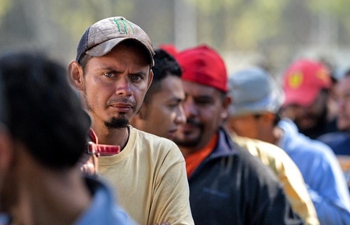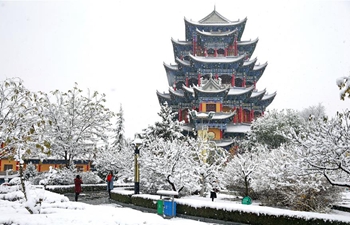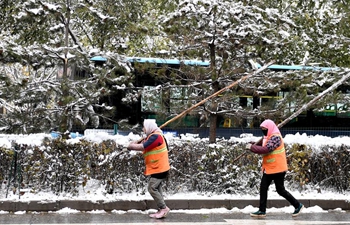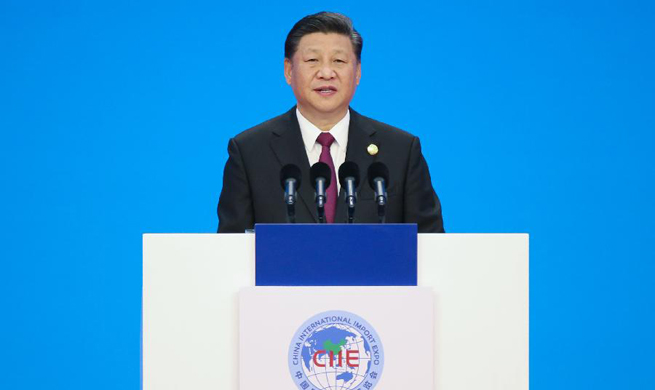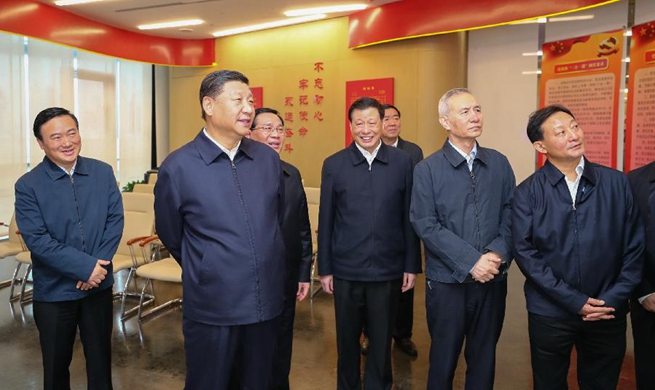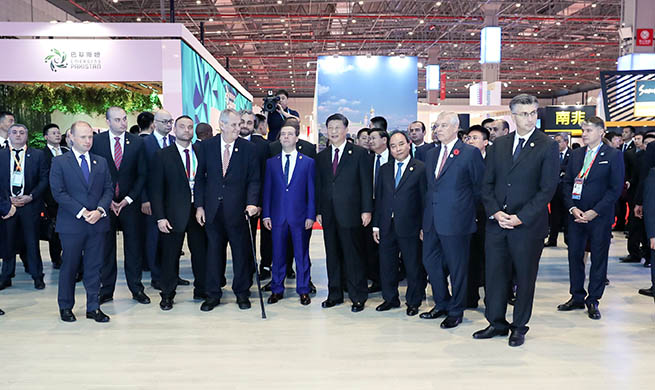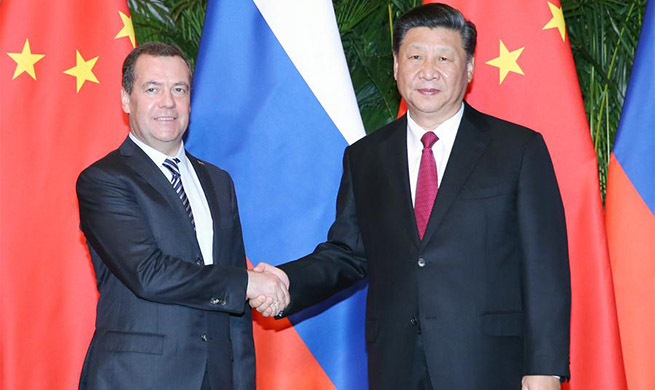TOKYO, Nov. 6 (Xinhua) -- Japan's central government and Okinawa prefecture agreed Tuesday to hold discussions for around a month on the contentious issues of the relocation of a U.S. military base within Japan's southernmost prefecture of Okinawa.
The talks held in Tokyo between Okinawa Governor Denny Tamaki and Japan's top government spokesperson Chief Cabinet Secretary Yoshihide Suga come at a time of mounting friction between the central government and Okinawa.
Under a 1996 pact made between Japan and the United States to relocate the U.S. Marine Corps Air Station Futenma, the central government later decided the base should be moved from the crowded residential district of Ginowan to the less populated coastal area of Henoko in Nago, also on Okinawa island.
Amid growing anti-U.S. sentiment on the tiny subtropical island and following Tamaki being elected as governor in September's gubernatorial election on a platform of opposing the base's relocation and lessening Okinawa's base-hosting burdens, Tamaki has been seeking to resolve the issue through dialogue with the central government.
The central government, however, despite Tamaki's push for face-to-face talks, has forged ahead unilaterally with land reclamation work necessary to build the new base after the land ministry issued an injunction to suspend Okinawa revoking a permit for the land reclamation work.
Tamaki had previously said that the central government's persistent push to continue the landfill work is completely unacceptable and against the will of Okinawans who wish to see the base moved outside of Okinawa and Japan altogether.
He had said the central government's move "tramples on the will of voters shown in the Okinawa gubernatorial election" and is "totally unacceptable."
Tamaki became Okinawa governor on Oct. 4 following the death of his predecessor Governor Takeshi Onaga and has been urging the central government to reduce Okinawa's disproportionate base-hosting burdens.
Prior to his death, Onaga revoked a landfill permit necessary for the construction of the new base and Tamaki has said that he was trusted by Onaga, himself a staunch opponent to the base move, before his death, to uphold his wishes and those of the people of Okinawa and continue to block the central government's plans to move the base.
Okinawa hosts the vast majority of Japan's U.S. bases, yet the island accounts for just a fraction of Japan's total land mass.
Calls are becoming more vociferous from Okinawans for its postwar occupation by U.S. forces to be completely ended, as, legally, Okinawa's control under the U.S. ended in 1972.
